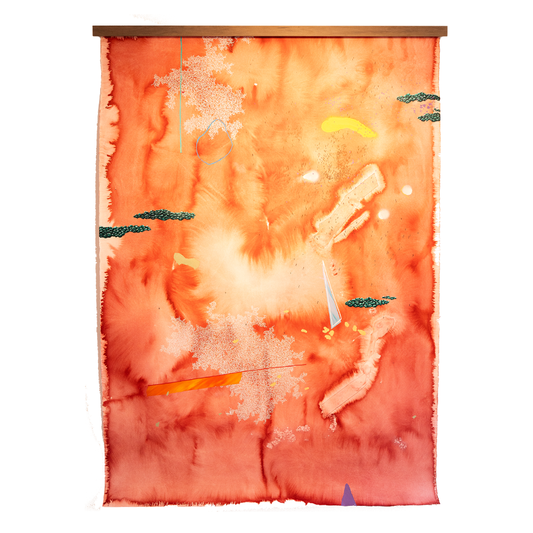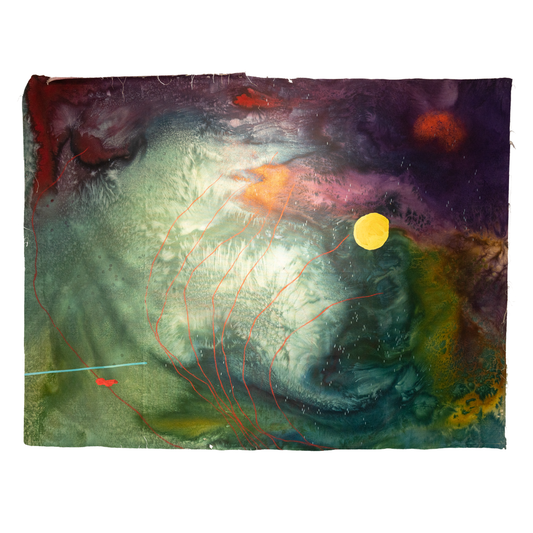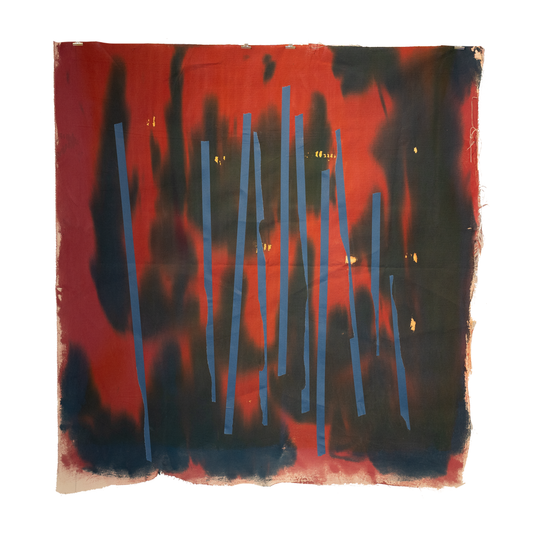Lemkus Gallery presents Nostalgia for the Impossible, a solo exhibition by Mongezi Ncaphayi showcasing works produced during the Residency28 programme. Ncaphayi is a distinguished painter/printmaker who is well known for his ad libitum compositions on canvas and paper. With this project, Mongezi has pursued a more direct engagement with the political undertones of his previous work; particularly the notion of displacement in the context of pre- and post-colonial South Africa.
This gesture aligns with the artist’s long-held occupation with notions of rupture, indexed by histories of migration and forced removal, and seeks to solidify the imperatives that belie the visual surface layers of his work. Nostalgia for the Impossible clarifies Ncaphayi’s concern with historical and ongoing anti-black violence, by incorporating research material (literature, music, found objects) that hints at the driving impulses behind his work. These inclusions also serve as a way of reckoning with the past, but with a significantly different character as popular deployments of nostalgia.
These features do not contrast but stand in close relation to Ncaphayi’s background as a jazz musician. The expressive and boundless qualities of jazz, its history of subversion and affinity to resistance movements across the globe, are recalled and reflected by Ncaphayi’s abstract forms. In this way, jazz and abstraction both function as a language of protest, revolution, and introspection. Take for instance Abdullah Ibrahim’s sonic interventions; their role in scoring the anti-apartheid struggle. In the wake of
these upheavals, Ncaphayi’s cosmic compositions convey its continuing strides and turmoil.
Ncaphayi’s compositions connote and encode various signs: maps, contour lines, boundaries, territories, geometric shapes, root systems. Iterated through diverse techniques, these signs collectively trace the history and afterlife of slavery across borders, from the Transatlantic to the Indian Ocean. These originary violences rhyme with and echo current social crises: homelessness, poverty, police brutality. Thus, Nostalgia for the Impossible conveys a yearning for an unimaginable reality— in which the freedom of abstraction (true freedom) and liberation (structural collapse) mirror one another.
[1] Nostalgia is defined as a sentimental yearning for the past. From a post-apartheid perspective, nostalgic imaginaries are inevitably troublesome, as they risk valorising aspects of the past that demand condemnation. Zamansele Nsele discusses explores these intricacies at length in her PhD thesis, Post-Apartheid Nostalgia and the Future of the Black Visual Archive (2020).
 Sold out
Sold out Sold out
Sold out Sold out
Sold out Sold out
Sold out Sold out
Sold out Sold out
Sold out Sold out
Sold out Sold out
Sold out Sold out
Sold out














